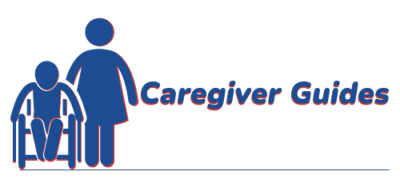
So, chronic fatigue is when you feel really tired all the time, even if you’ve had a good night’s sleep. It’s not just about feeling a little sleepy or worn out after a long day. Instead, it feels like a constant and lingering exhaustion that makes it hard to do simple everyday tasks, even the things you actually enjoy or love doing. It’s like your tank is running on empty, and there is no amount of rest or sleep that seems to help. For the overworked caregiver it could be a sign of burnout.
It can impact various parts of the body too making it hard to do the things you need to as a caregiver. The exact cause of chronic fatigue remains unclear, but scientists and medical professionals believe it involves a combo of things that inclue your genes, your environmental, and certain psychological factors. It’s important to note that chronic fatigue is often referred to as chronic fatigue syndrome (CFS) or myalgic encephalomyelitis (ME) in the medical literature. Let’s take a look at how it affects people.
Chronic Fatigue Can Affect Your Nervous System
Studies have shown that CFS does affect the nervous system. Your nervous system includes your brain and all the nerves throughout your body and it’s crucial in regulating your energy levels. In the case of chronic fatigue, your nervous system may not function as efficiently as it should. This can lead to poor communication between your brain and the rest of your body. All this can result in you having difficulty concentrating, memory problems, and having an overall sluggishness about you.
Chronic Fatigue Can Affect Your Immune System
The immune system. Some researchers believe that chronic fatigue might be linked to a weakened immune system or it could be an ongoing immune response to something. This means your body could be in a state of constantly fighting off infections (whether or not you have an actual infection) or reacting to inflammation, leaving that leaves you feeling drained and tired all the time.
Chronic Fatigue Can Affect Your Endocrine System
Your endocrine, or hormonal, system, which produces and regulates all the hormones (chemicals) your body produces, can also play a role in chronic fatigue. Hormones like cortisol, which is produced by your adrenal glands, helps to regulate your respones to stress and your energy levels. If there’s an imbalance in your hormone production or if your body isn’t responding well to these hormones, it can contribute to the ongoing feelings of exhaustion associated with chronic fatigue.
Chronic Fatigue Can Affect Your Muscular System
The muscular system is another part of the body that can be affected by chronic fatigue. People that have this condition often complain of muscle pain, muscle weakness, and an overall lack of stamina. This will make it difficult for you to do the physical activity that’s needed for the hands on aspects of caregiving like the bathing or assisting with mobility. This lack of stamina just makes doing everything that much more difficult.
Chronic Fatigue Can Also Affect You Psychologically
Last but definitely not least, the psychological aspect shouldn’t be overlooked. CFS can have a significant impact on your mental health. It often leads to feelings of depression or anxiety in most people with the condition. These emotional challenges can make the physical symptoms mentioned above feel that much worse. Overall, making it even harder for you to cope with all your daily tasks and responsibilities.
Treating Chronic Fatigue Syndrome
It’s important that caregivers know and pay attention to the signs of CFS. And I want to point out that there are treatments for those with it. Treatments typically involve a combination of lifestyle changes, emphasis on self-care, psychotherapy if it’s needed, and medications aimed at managing specific symptoms (pain, depression, or hormonal imbalances) that may develop. Although the recovery time can vary between individuals, because everyone is dealing with their own individual stresses and strains, recovery is possible. For this reason, its essential you work closely with healthcare professionals to develop an individual, tailored approach, to managing your symptoms and the condition.

Bryan Williams
Physical Therapist
is a licensed therapist with near 30 years of professional experience treating a diverse patient population in a multitude of settings. With simple strategies, he educates and empowers his clients with simple strategies to help them move better and with less pain.

